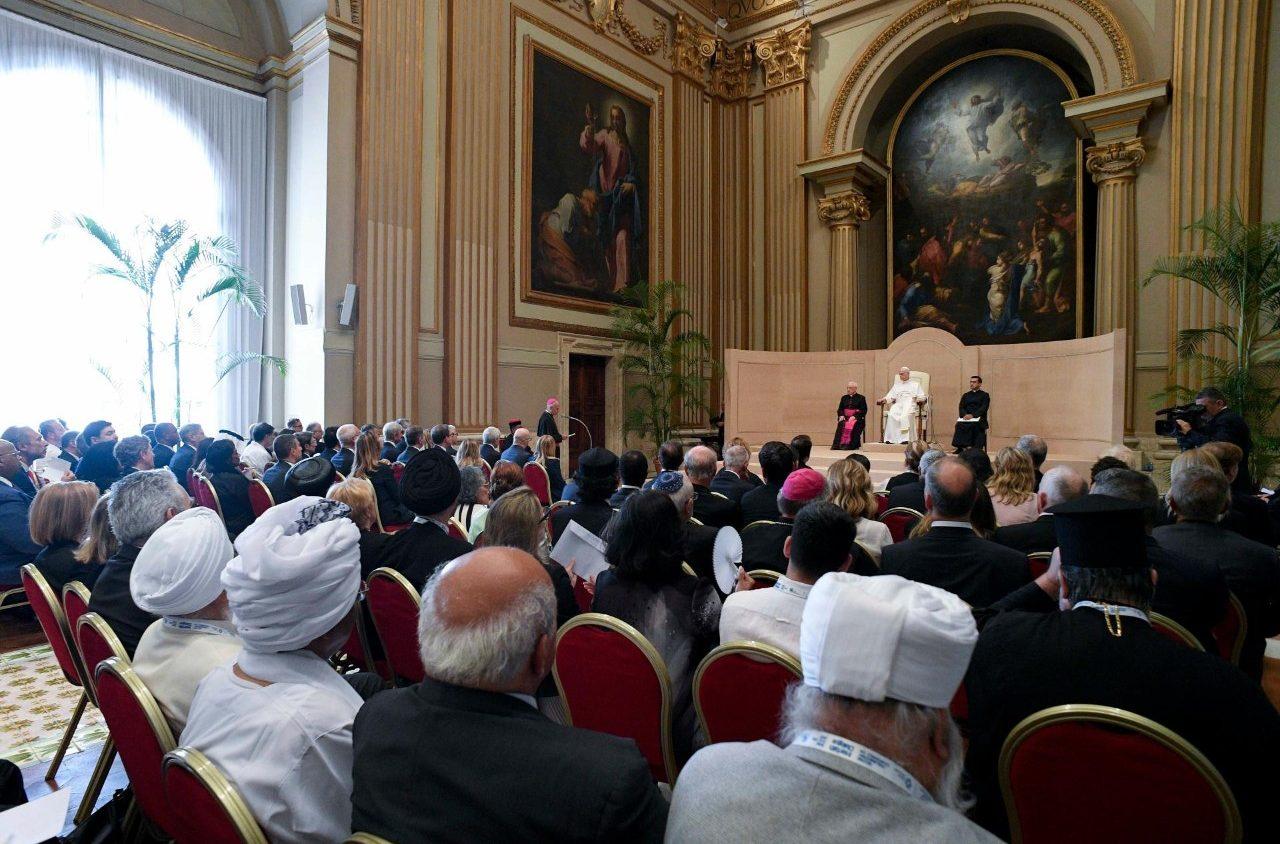Speaking to a group of elected officials, Pope Leo XIV stressed the importance of Natural Law, which called “an essential reference point” for international relations.
He was speaking on June 21 to members of the Inter-Parliamentary Union, which was established in 1889 as to promoting peace through parliamentary diplomacy and dialogue and now has 181 members and 15 associate members.
“The first concerns your responsibility to promote and protect, independent of any special interest, the good of the community, the common good, particularly by defending the vulnerable and the marginalized,” Leo told the parliamentarians, who are at the Vatican for the Jubilee of Governments.
“Those who live in extreme conditions cry out to make their voices heard, and often find no ears willing to hear their plea,” the pope said.
“This imbalance generates situations of persistent injustice, which readily lead to violence and, sooner or later, to the tragedy of war. Sound politics, on the other hand, by promoting the equitable distribution of resources, can offer an effective service to harmony and peace both domestically and internationally,” he continued.
Leo said that in order to have a shared point of reference in political activity, an essential reference point is the natural law, “written not by human hands, but acknowledged as valid in all times and places, and finding its most plausible and convincing argument in nature itself.”
He quoted Cicero words on this in De Re Publica: “Natural law is right reason, in accordance with nature, universal, constant and eternal, which with its commands, invites us to do what is right and with its prohibitions deters us from evil… No change may be made to this law, nor may any part of it be removed, nor can it be abolished altogether; neither by the Senate nor by the people, can we free ourselves from it, nor is it necessary to seek its commentator or interpreter. And there shall be no law in Rome, none in Athens, none now, none later; but one eternal and unchanging law shall govern all peoples at all times.”
The pope said natural law, which he said is universally valid apart from and above other more debatable beliefs, “constitutes the compass by which to take our bearings in legislating and acting, particularly on the delicate and pressing ethical issues that, today more than in the past, regard personal life and privacy.”
“The Universal Declaration of Human Rights, approved and proclaimed by the United Nations on December 10, 1948, is now part of humanity’s cultural heritage. That text, which is always relevant, can contribute greatly to placing the human person, in his or her inviolable integrity, at the foundation of the quest for truth, thus restoring dignity to those who do not feel respected in their inmost being and in the dictates of their conscience,” Leo said.
Speaking about religious freedom and interreligious dialogue, the pope said it was an area that has taken on greater significance in the present time, “and political life can achieve much by encouraging the conditions for there to be authentic religious freedom and that a respectful and constructive encounter between different religious communities may develop.”
“Belief in God, with the positive values that derive from it, is an immense source of goodness and truth for the lives of individuals and communities,” he said.
Pope Leo also told the elected officials they must address the “major challenge” caused by the rise of artificial intelligence.
“This is a development that will certainly be of great help to society, provided that its employment does not undermine the identity and dignity of the human person and his or her fundamental freedoms,” he said.
“In particular, it must not be forgotten that artificial intelligence functions as a tool for the good of human beings, not to diminish them, not to replace them. What is emerging is in fact a significant challenge, one that calls for great attention and foresight in order to project, also in the context of new scenarios, healthy, fair and sound lifestyles, especially for the good of younger generations,” the pope continued.
“Our personal life has greater value than any algorithm, and social relationships require spaces for development that far transcend the limited patterns that any soulless machine can pre-package,” Leo said.
“Let us not forget that, while able to store millions of data points and answer many questions in a matter of seconds, artificial intelligence remains equipped with a ‘static memory’ that is in no way comparable to that of human beings,” he said, adding that people’s memory, on the other hand, “is creative, dynamic, generative, capable of uniting past, present and future in a lively and fruitful search for meaning, with all the ethical and existential implications that this entails.”
Pope Leo concluded his address by referring to the patron saint of politicians, Sir Thomas More, the former Chancellor of England executed under King Henry VIII in 1535 for refusing to acknowledge his divorce and remarriage. Although the pontiff didn’t mention it, he was speaking the day after the UK Parliament voted to legalize assisted suicide in England and Wales.
“Saint Thomas More as a witness for political leaders to revere and an intercessor under whose protection to place their work,” the pope said.
“Sir Thomas More was a man faithful to his civic responsibilities, a perfect servant of the state precisely because of his faith, which led him to view politics not as a profession but as a mission for the spread of truth and goodness,” Leo said.
“The courage he showed by his readiness to sacrifice his life rather than betray the truth makes him, also for us today, a martyr for freedom and for the primacy of conscience. May his example be a source of inspiration and guidance for each of you,” he told the parliamentarians.
Follow Charles Collins on X: @CharlesinRome










